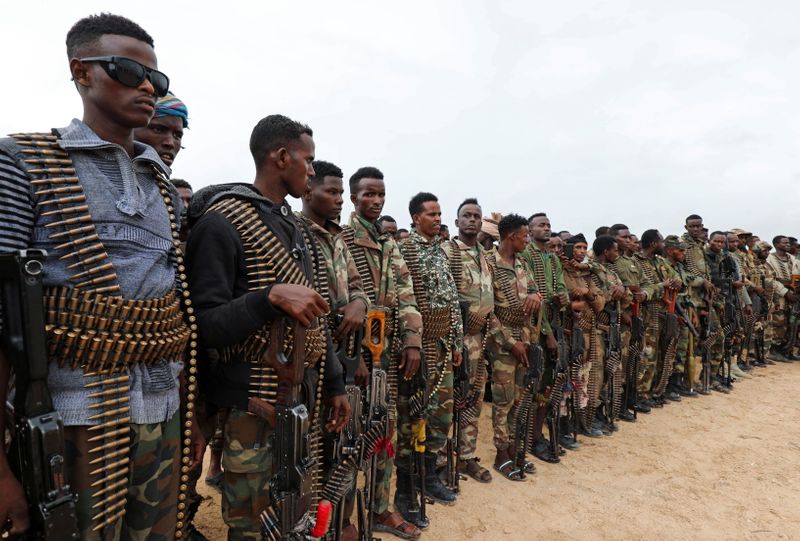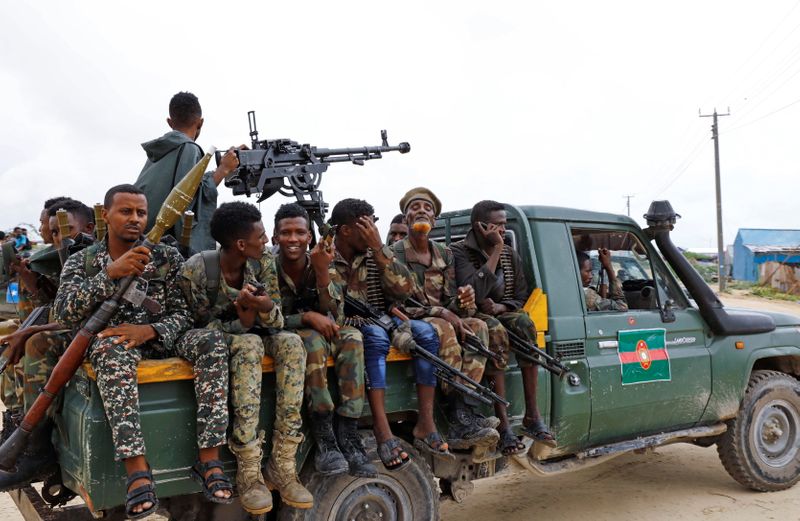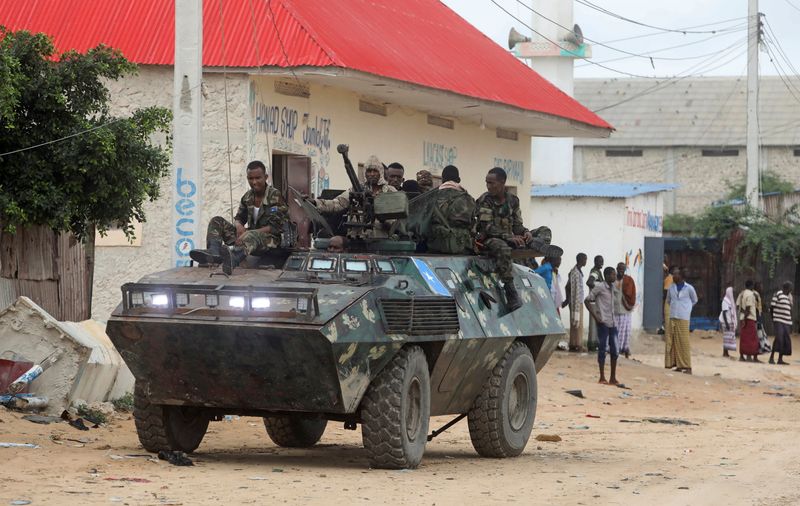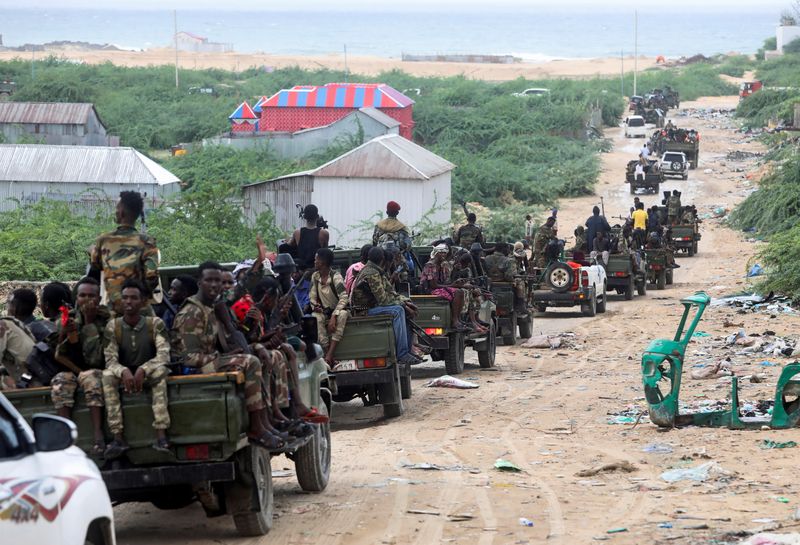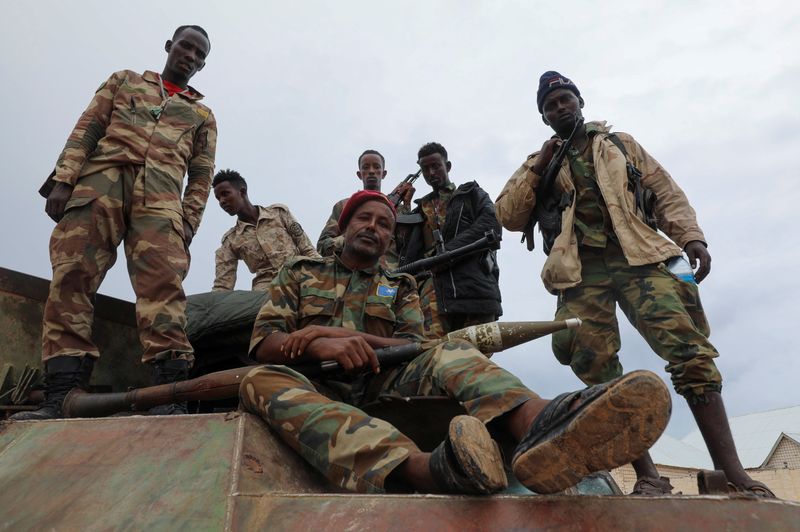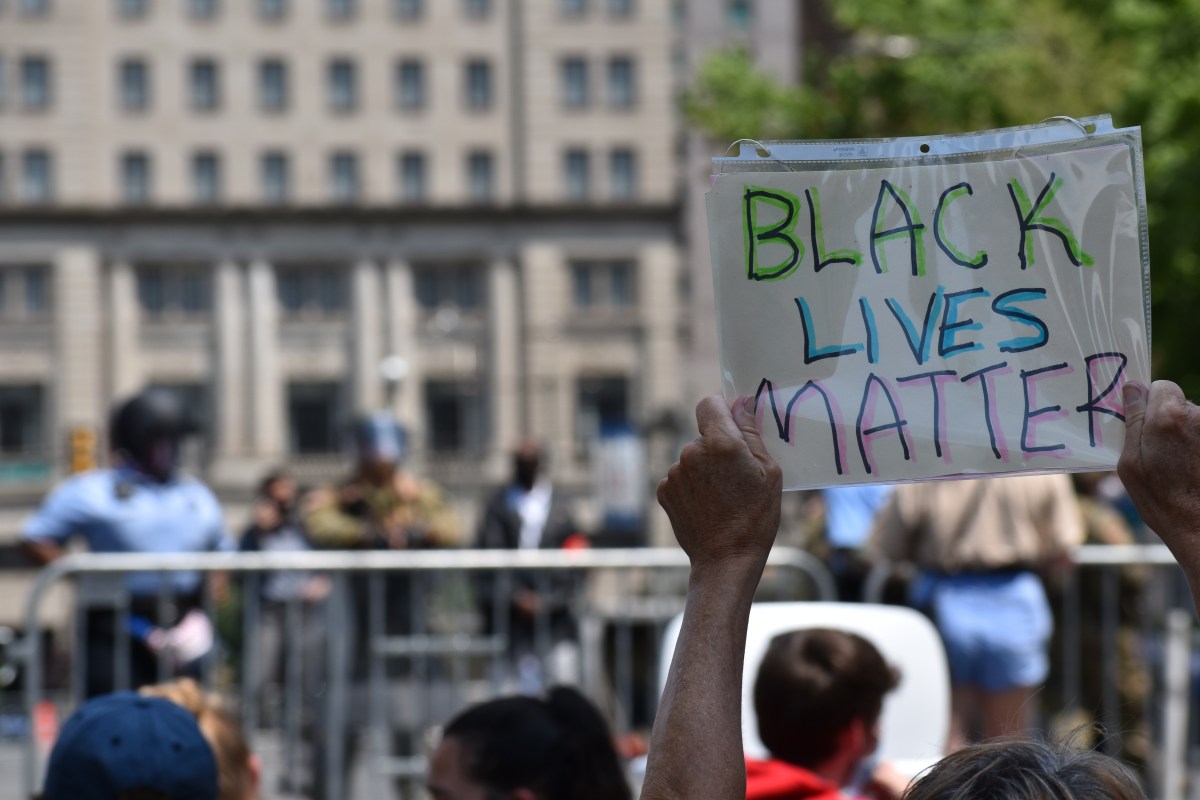MOGADISHU (Reuters) – Hundreds of Somali forces who back the opposition began returning to their barracks on Friday after reaching an agreement with the prime minister following clashes over the tenure of the president, a spokesman for the troops said.
Somali lawmakers voted on Saturday to overturn the two-year presidential term extension they had approved last month after the violence stirred fears of all-out war between heavily armed troops for and against the president.
A Reuters photographer and camera operator saw heavily armed troops moving on foot and in military vehicles in the capital Mogadishu on Friday afternoon, some returning to a military camp in the city.
“We agreed to go back to our barracks after the prime minister ordered us yesterday. So these forces are the ones who were fighting in the north of Mogadishu and the other forces are coming out and they are ready,” Major Diini Ahmed, spokesman for the opposition-allied troops, told Reuters.
He told Reuters late on Thursday that the troops had agreed to return to barracks.
The agreement to end the months-long standoff included demands that opposition-allied forces returned to barracks within 48 hours, that soldiers be apolitical, and a promise that soldiers who supported the opposition would not be penalised.
Prime Minister Mohamed Hussein Roble said he had supervised the reopening of the streets and removal of barricades as part of the agreement signed on Wednesday.
“May our capital enjoy peace, security, stability and prosperity,” he tweeted on Wednesday.
The crisis had raised fears that al Qaeda-linked al Shabaab insurgents could exploit a security vacuum if state forces split along clan lines and turn on each other.
The dispute flared when, amid political wrangling between federal and regional authorities and the opposition, Somalia failed to hold an election in December for a new crop of legislators who were supposed to select a president in February.
In April, the lower house of the existing parliament approved a two-year term extension for President Mohamed Abdullahi Mohamed, although the Senate rejected it.
Despite lawmakers unanimously rescinding their approval, some in the opposition remain sceptical of Mohamed’s stated willingness to step down and want him to immediately hand over power to the prime minister.
(Reporting by Feisal Omar in Mogadishu and Abdiqani Hassan in Garowe; Writing by Maggie Fick; Editing by Alison Williams)

